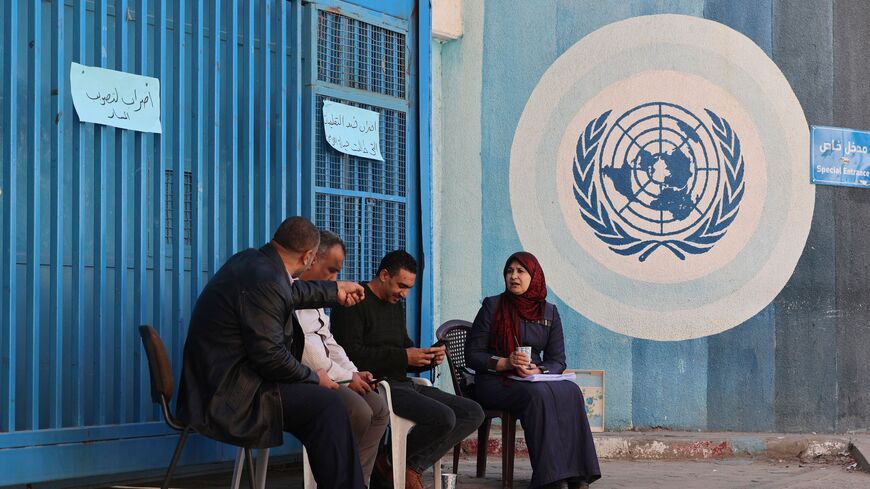Staff at the UN Relief and Works Agency for Palestine Refugees in the Near East (UNRWA) in the Gaza Strip staged a general strike in the enclave on Sunday in protest against the agency’s lack of response to their demands, the UNRWA’s local staff union said in a statement.
“There has been no positive progress regarding our demands except for some minor responses,” the Arab Employees Union added.
A crisis between the UNRWA and its Gaza employees has been brewing for months as staffers demand that the agency halt its downsizing plans and improve working conditions.
The head of the Arab Employees Union, Amin al-Mishal, told Al-Araby al-Jadeed that Sunday’s strike is the beginning of a series of escalatory steps to pressure the UNRWA’s administration to meet all their demands that had been previously approved.
In February, the UN agency announced that it would reduce the percentage of teachers working in its schools on daily contracts to 7.5% while increasing permanent and fixed contracts — which is one of the main demands of the Gaza-based staff.
“Currently, there are 1,404 teachers working in UNRWA schools in Gaza on day-care contracts, which constitutes 15.44% of the total number of teachers,” the agency said in a statement back then.
It added that it will employ 750 teachers based on fixed contracts in the next three years, starting with 250 in the first year.
According to Mishal, 200 teachers have been appointed at UNRWA-run schools so far — but many of their demands remain unmet, including salary increases to cope with the chronic economic crisis in Gaza.
The UNRWA has faced a severe budget gap since the Trump administration cut its annual $300 million contribution in 2018. Although Washington partially resumed its assistance to the UNRWA in April 2021, the agency is still unable to fill its financial gap, which has affected its activities in the areas where it operates, mainly in Gaza, the West Bank and Lebanon.
Sunday’s strike paralyzed the agency’s institutions across Gaza, including schools and clinics. The Gaza Strip is already facing an acute humanitarian crisis as a result of the ongoing Israeli siege imposed since 2007 following Hamas’ takeover of the coastal enclave.
UNRWA employees in Gaza had been on a partial strike since March 27, suspending several of their activities such as workshops and social services visits.
The Arab Employees Union threatened on Sunday to go on an open-ended strike as long as their demands are not met.
The UNRWA was established following the 1948 Arab-Israeli conflict “to carry out direct relief and works programs for Palestine refugees,” according to the agency’s website.
Today, the UN agency provides services to 5.9 million Palestinian refugees in the Middle East in the education, health, relief and social services sectors, among many others.
The UNRWA has been accused by Israel in the past of employing Hamas members and using antisemitic textbooks. The agency, however, denies the accusations.
In November 2022, the UNRWA condemned the presence of a “man-made cavity" it discovered underneath one of its schools in Gaza, describing it in a statement as “a serious violation of [its] neutrality and a breach of international law.”







